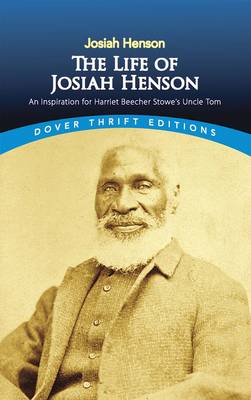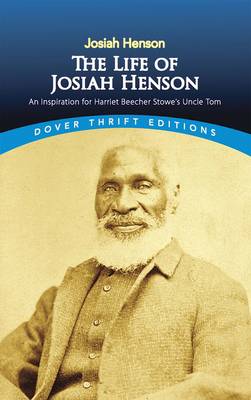
- Afhalen na 1 uur in een winkel met voorraad
- Gratis thuislevering in België vanaf € 30
- Ruim aanbod met 7 miljoen producten
- Afhalen na 1 uur in een winkel met voorraad
- Gratis thuislevering in België vanaf € 30
- Ruim aanbod met 7 miljoen producten
Zoeken
€ 6,95
+ 13 punten
Uitvoering
Omschrijving
Born into slavery on a Maryland farm, Josiah Henson (1789-1883) worked as a foreman, married, and became a preacher in the Methodist Episcopal Church. Faced with the prospect of separation from his family, Henson fled with his wife and children to Ontario, where he became a leader in the Afro-Canadian community. The Life of Josiah Henson, Formerly a Slave, Now an Inhabitant of Canada, as Narrated by Himself first appeared in 1849. The book's avid readers included Harriet Beecher Stowe, who later acknowledged its influence on her own masterwork, Uncle Tom's Cabin.
Henson's narrative recounts the circumstances of his bondage, his conversion to Christianity, and his fruitless attempts to buy his freedom. Risking starvation, exposure, and recapture, the Henson family walked from Kentucky to Ohio. Native Americans assisted the struggling family, as did sympathetic boatmen who ferried them across Lake Erie. Safely established as a tenant farmer and clergyman in a new country, Henson took an active role in organizing a self-sufficient community. His memoirs helped alert his contemporaries to the horrors and heartbreak of slavery, and they offer modern readers an authentic account of one family's triumph over injustice and inhumanity.
Henson's narrative recounts the circumstances of his bondage, his conversion to Christianity, and his fruitless attempts to buy his freedom. Risking starvation, exposure, and recapture, the Henson family walked from Kentucky to Ohio. Native Americans assisted the struggling family, as did sympathetic boatmen who ferried them across Lake Erie. Safely established as a tenant farmer and clergyman in a new country, Henson took an active role in organizing a self-sufficient community. His memoirs helped alert his contemporaries to the horrors and heartbreak of slavery, and they offer modern readers an authentic account of one family's triumph over injustice and inhumanity.
Specificaties
Betrokkenen
- Auteur(s):
- Uitgeverij:
Inhoud
- Aantal bladzijden:
- 96
- Taal:
- Engels
- Reeks:
Eigenschappen
- Productcode (EAN):
- 9780486800455
- Verschijningsdatum:
- 14/01/2016
- Uitvoering:
- Paperback
- Formaat:
- Trade paperback (VS)
- Afmetingen:
- 127 mm x 203 mm
- Gewicht:
- 90 g

Alleen bij Standaard Boekhandel
+ 13 punten op je klantenkaart van Standaard Boekhandel
Beoordelingen
We publiceren alleen reviews die voldoen aan de voorwaarden voor reviews. Bekijk onze voorwaarden voor reviews.











